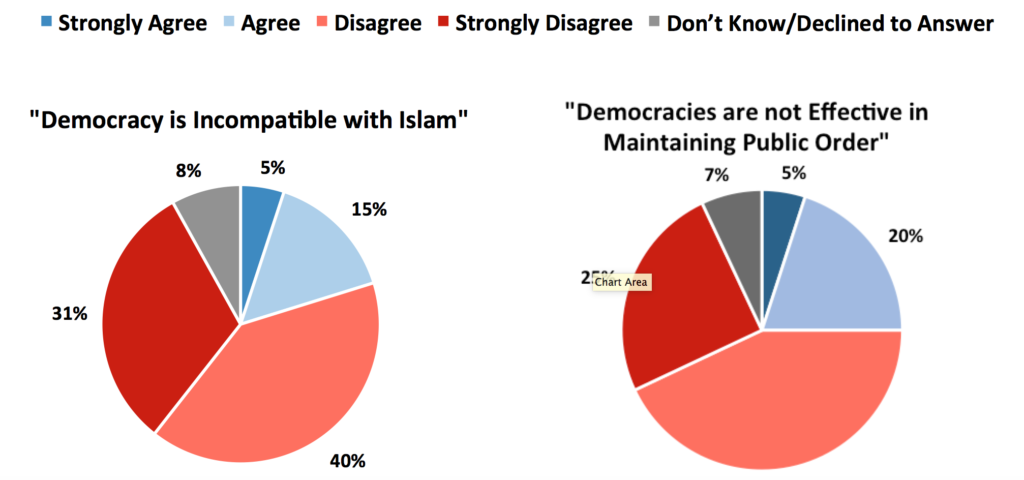
The Arab world is in the middle of a process of deep social and political change, according to analyst José Antonio Sabadell. The experience of successive attempted revolutions across the Arab world indicates that discontent with the status quo and a yearning for dignity and democracy can be the driving force behind powerful social and political demands, he writes in a new report from Harvard’s Belfer Center, exploring the role that frustration can play in politics and political identities in the Arab world.
 But there is also a significant risk that this impulse for change can be seized by extremist movements, who pump from the deep wells of frustration and hopelessness, channel those sentiments to provoke hate and resentment against the West and use the defense of Islam as a turbine to generate political energy, Sabadell adds:
But there is also a significant risk that this impulse for change can be seized by extremist movements, who pump from the deep wells of frustration and hopelessness, channel those sentiments to provoke hate and resentment against the West and use the defense of Islam as a turbine to generate political energy, Sabadell adds:
 The emergence of Arab peoples as key political actors, in combination with widespread, profound and mounting popular frustration, is a game changer. What Arab populations think and, crucially, how they feel, will determine the future evolution of their countries and of the region, and may call into question existing social contracts, the pertinence of present borders, the role of religion, the model of relations with the rest of the world, the sources of legitimacy and other basic components of political and social consensus.
The emergence of Arab peoples as key political actors, in combination with widespread, profound and mounting popular frustration, is a game changer. What Arab populations think and, crucially, how they feel, will determine the future evolution of their countries and of the region, and may call into question existing social contracts, the pertinence of present borders, the role of religion, the model of relations with the rest of the world, the sources of legitimacy and other basic components of political and social consensus.
The immense majority of Muslims do not see their religion as incompatible with democracy, Sabadell notes:
In a poll by the Arab Center in 2016 (above), 77 percent of respondents considered democracy to be the most appropriate system of government for their countries, and a small majority (53 percent, 23 strongly) thought it was better to separate religion from politics. …. When asked to identify places where they thought there was most freedom and democracy for their own people, the overwhelming majorities of Arabs repeatedly identified Western countries.
But tunnel vision on security and extremism, amalgamated with the belief that Western democracy was the only imaginable way of government, have blinded the West to the internal dynamics and political evolution of the region, he contends.







